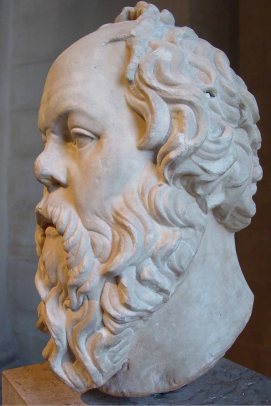Lee McIntyre says in “The Attack on Truth” that we have entered the age of willful ignorance. “There is simple ignorance and there is willful ignorance, which is simple ignorance coupled with the decision to remain ignorant.” And once you have chosen to remain ignorant, what does the truth matter? McIntyre explains how we got to this point and what we might be able to do about it. “Respecting truth is a choice.”
Month: June 2015
Imagining yourself in someone else’s shoes
Is imagining what it is like to be someone else a good way to make moral decisions? Paul Bloom says no in “Imagining the Lives of Others.” For one thing, we’re not very good at imagining the lives of other persons. We are better off using general moral principles to make moral decisions at what we owe others.
Getting it right
What counts as knowledge? Everyone used to think knowledge is justified true belief. Knowledge is a belief that is both true and justified (i.e. you have good reasons for the belief). But as Ernest Sosa points out in “Getting It Right,” that definition has the problem that we can have good reasons to believe something is true but be right only by accident. So what will count as knowledge? Sosa shows how “virtue epistemology” might work. In living our lives virtue is getting it just right. Similarly, in knowing the world, virtue would again be getting it just right. “[T]o know … is to make an affirmation that is accurate (true) and adroit (which requires taking proper account of the evidence). But in addition, the affirmation must be apt; that is, its accuracy must be attributable to competence rather than luck.”
Painful memories
In “A Good Forgetting,” Marianne Janack considers whether we may be happier forgetting some things despite the close link between memory and personal identity. “Personal identity is tied to memory, but sometimes we find peace, clarity and a true sense of completeness in the lapses.” What if we stripped away the pain so that we kept the memory but without its emotional baggage?
